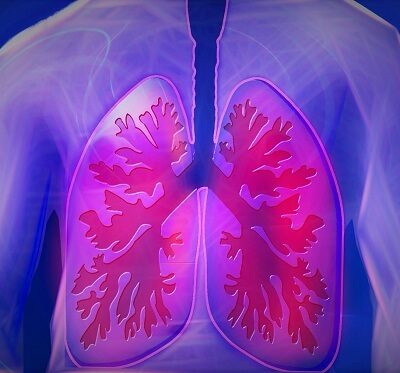

Every year, around 22,000 people are diagnosed with pneumonia in the UK. Sometimes contracting this disease can prove fatal. In 2019, it was the elderly who suffered the most pneumonia-related deaths with figures increasing drastically amongst over-70s. It is important to know how to recognise the symptoms so that elderly people can receive the support they need. Winter, especially, can be a dangerous time for our elderly loved ones.
Pneumonia is a respiratory condition, generally caused by a bacterial infection, though it can also be caused by a virus. It inflames the lungs, obstructing the breathing. It is worsened by filling the air sacs in the lungs with fluid.
The most common form of pneumonia is called “community-acquired pneumonia”. It is contracted through exposure to the virus or bacteria outside of hospital. Pneumonia can also be caught in hospital and is known as “hospital-acquired pneumonia”. It poses the greatest risk to patients on breathing machines.
There is a third form of pneumonia known as “aspiration pneumonia”. This condition is caused when food, vomit, or harmful substances are accidently inhaled. It is most common amongst elderly people and those with swallowing difficulties.
Pneumonia can develop very quickly, sometimes showing within 24 hours. It can also take days to show.
Difficulty breathing, high temperatures, chest pains, and a continuous cough tend to be the most obvious symptoms. Coughing can also produce thick, unpleasant phlegm.
Other symptoms may include extreme fatigue, headaches, and muscular pain. Elderly people with pneumonia may also become confused and disorientated.
If symptoms of pneumonia are present in your elderly loved ones, they need to get a diagnosis from their GP as soon as possible. Once they have a diagnosis, the condition can be treated. Bacterial pneumonia can be treated with rest and antibiotics, but if the condition becomes more severe your loved one may require hospitalisation.
It is better to prevent pneumonia than for it to need treating. Avoiding an infection may be as simple as washing your hands regularly. Healthy life choices, such as avoiding smoking and alcohol, can help to keep the lungs strong.
Finally, receiving flu and pneumococcal vaccines can help reduce the risk of infection.
Whether you are suffering from a health condition or just need some extra support around the home, Abing can help. We provide professional care services tailored to your loved one’s needs. Depending on the level of support they require, they can opt for domiciliary or live-in care.
You can find more information on our care services by checking out our FAQs and Help Hub. Alternatively, call our helpful team on 0800 008 7000.